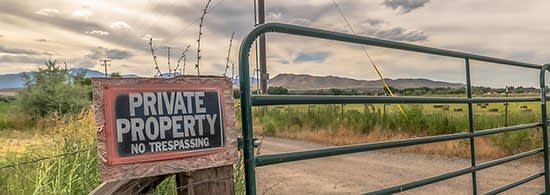
Enforcing Easement Maintenance
An easement involves the right to use another party’s land for a specific purpose, in most cases to cross over it to access a public road. Utility companies also often hold easement rights on people’s property for the purposes of installation and upkeep of power and gas lines. An easement is not ownership, but a right to use the land in a certain way.
What if you and a neighbor or two jointly use an easement across your property to gain access to a public road, and the private easement falls into disrepair? Who is responsible for maintaining it? You? The owner of the property? All of you? How are responsibilities determined, and how are they enforced? Who pays the costs?
Under Washington law, these matters can get tricky, and a lot will depend on what type of easement your party is using and whether there is a written agreement spelling out rights, duties, and responsibilities.
If you find yourself in an easement dispute in Tacoma, Washington, or in cities throughout Pierce County, contact our team of real estate attorneys at Curiale Hostnik PLLC immediately.
How Are Easements Created?
Easements in Washington can generally be broken down into five types, each relating to how they were created:
Express easements: These are created by mutual agreement among the parties involved and are generally written down or recorded by deed.
Easements implied by prior use: Implied easements often involve property that has been subdivided and where a right of way previously existed across the undivided property. When the property is divided, the right of way can become an implied easement because of prior use.
Easements implied by necessity: This type of easement pertains to property that is landlocked and the owner needs access to another property for street or utility access.
Prescriptive easements: These are created when one property owner openly and continuously uses part of another’s land for 10 years or more, much like adverse possession.
Easements created by eminent domain: The government or a public utility may take part of your land for the “benefit of the public,” but they must provide fair compensation in doing so.
Who is Responsible for Maintaining an Easement?
If there is a written easement agreement, that document should — but often does not — spell out who is responsible for maintaining an easement used by two or more property holders. Unfortunately, there is no direct Washington statute spelling out how responsibility is split or shared on easements, though legislative attempts have been made.
Common law precedent holds that all parties who use and/or benefit from the easement have a responsibility for maintenance to keep it in usable condition based upon their contribution to wear and tear of the easement. Factors here can include frequency of use and the size of the vehicle using the easement if it’s an access way.
In legal terms, the land on which the easement is based is called a servient tenement, while the properties benefiting from the easement are known as dominant tenements. If the owner of the servient tenement does not use the easement, the courts have ruled that he or she has no obligation to maintain the easement. In one court case, a servient tenement owner — on whose land ran a sewer line that he did not use — was found not liable when the line became clogged by the roots of a tree on his land.
At the end of the day, maintenance issues are best resolved by negotiations among all users. Any lingering disputes may have to be litigated in court in the absence of a state maintenance law.
Rely on Our Team at Curiale Hostnik PLLC for Help
Easement disputes can easily arise, especially if one of the conjoining properties changes hands. The new owner may decide to dispute everything, or even proclaim an end to the arrangement: “No one is crossing over my property.”
Our team of real estate attorneys at Curiale Hostnik PLLC has more than three decades of experience in handling such disputes. We will research any and all documents related to the easement, investigate how the easement was created and what, if any, conditions pertain to its continued use.
If you’re in the Tacoma area, or in Pierce County cities like Puyallup, Gig Harbor, or University Place, call us immediately for a case assessment.
